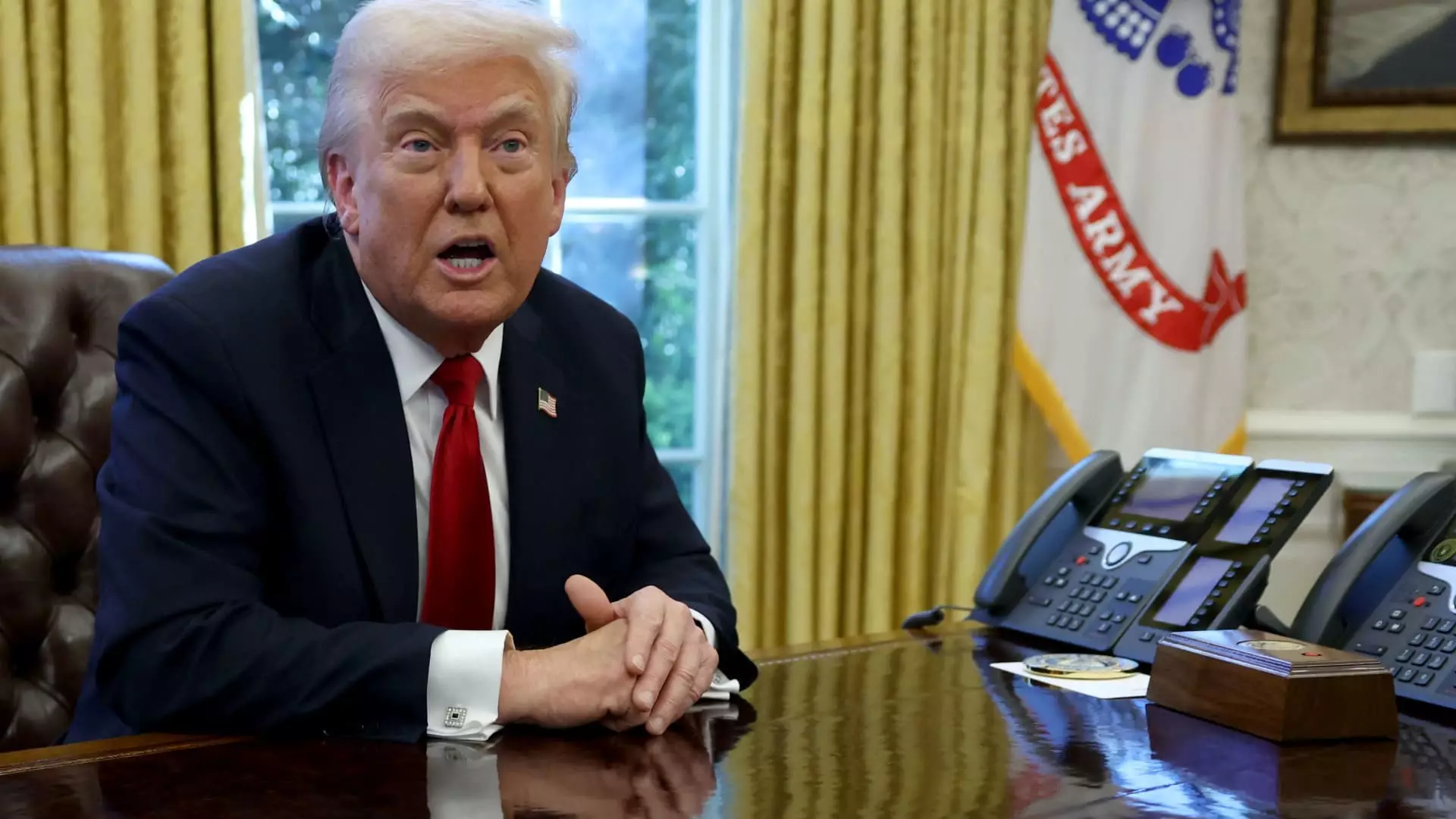The announcement of 25% tariffs on foreign-made cars by President Donald Trump has sparked a significant divide in economic and political circles. While the Trump administration’s intent was likely rooted in bolstering American manufacturing, the repercussions of such sweeping economic measures could stifle innovation and disrupt the delicate balance of the automotive market. Tariffs can often be a double-edged sword—intended to protect domestic industries, they can inadvertently trigger unintended consequences that echo through the economy.
Musk’s involvement as a pivotal advisor to Trump, complete with his sizeable contribution towards reviving Trump’s presidency, positions him uniquely within the scenario. However, Trump’s assertion that Musk has a conflict of interest—essentially because of his role in advising the administration—raises eyebrows. Is it pragmatic for the CEO of a major car manufacturer to simultaneously serve in a governmental advisory role, or does this blur the lines of ethical governance? Moreover, if the tariffs create more harm than good for Tesla and similar companies, the conflict becomes even more pronounced.
Economic Implications for Tesla and Beyond
While the tariffs might appear beneficial for companies like Tesla, Trump’s vague proclamation of potential “net neutral” effects doesn’t inspire confidence. Tesla and other automakers rely heavily on a global supply chain for components. Parts like brakes and circuit boards are often sourced from foreign manufacturers—a necessary evil in an industry pushing for rapid innovation and cost-effectiveness. Tesla’s own admission highlights a critical truth: the self-sufficiency that these tariffs are meant to incentivize is an uphill battle for many local manufacturers.
The issue isn’t merely about protecting American jobs; it’s about ensuring that American companies can remain competitive on a global stage. If the cost of production rises due to tariffs, consumers may find themselves facing higher prices for electric vehicles, potentially discouraging adoption at a time when the focus should be on green technology and sustainability.
Even more concerning is the looming competition that Tesla faces from manufacturers like BYD in China. Although BYD hasn’t yet entered the U.S. market, their advancements pose a significant threat. With every consumer dollar spent on foreign cars, the cost of inaction becomes all the more apparent. If American companies are unable to compete at the forefront, innovation will migrate elsewhere.
The Government Efficiency Initiative: A Surface-Level Savvy
Elon Musk’s leadership in the Department of Government Efficiency (DOGE) offers a glimmer of hope amidst the chaos of tariffs and trade wars. This initiative, aimed at reducing federal spending and streamlining government agencies, seems commendable on the surface. But, is it simply a façade that glosses over deeper issues? Such initiatives must be more than just symbolic gestures—they need to cultivate a culture of true innovation and efficiency beyond the government’s bureaucratic layers.
The real test lies in how this program is executed. If it proves to be an ineffective show of bravado, it will not only waste taxpayer money but could also detract from the very innovation that is crucial for maintaining global competitiveness.
Moreover, while Trump’s outreach to Tesla by transforming the White House lawn into an impromptu showroom may appear supportive, one must question whether such grand gestures truly serve the operational realities of manufacturers striving within increasingly restrictive regulatory environments. This does little more than placate a public eager for visible gestures without addressing the substance behind policy decisions.
Market Responses and Investment Sentiments
The immediate market reaction to these tariffs was telling, with shares of major domestic automakers—including Ford, General Motors, and Tesla—taking a slight dip. This decline raises important questions about investor confidence and the potential impact on innovation funding. The automotive industry thrives on forward investment, and if companies remain uncertain about policy stability, they may opt to delay or retract crucial investments, which could stunt technological advancement at a crucial juncture.
At a time when we should be doubling down on electric mobility and renewable energy, the imposition of tariffs might not align with the progressive vision required for America’s future. Instead of building walls around our industries, a more nuanced economic relationship with global partners would allow for a more robust and innovative American landscape.

